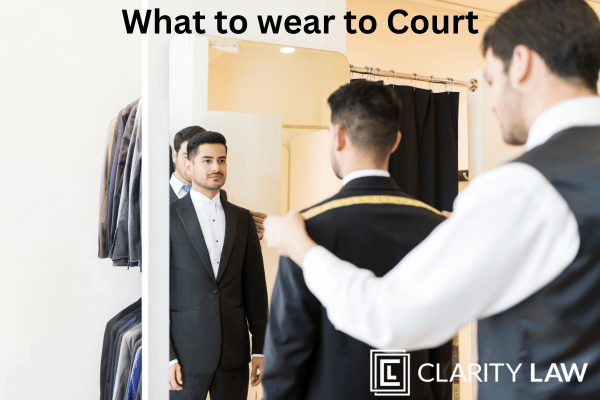
Facing a criminal charge in Queensland can be a daunting experience, but presenting yourself in court with appropriate attire can help convey respect for the legal process and possibly influence the perception of the judge and jury. While there's no strict dress code outlined in Queensland law, dressing conservatively and professionally is generally advisable. Here's a comprehensive guide on what to wear to court when you're facing a criminal charge in Queensland.
Understanding the Importance of Dressing Appropriately
First impressions matter, especially in a courtroom setting where judgments can be swift and influenced by various factors. Knowing what to wear to court can potentially impact how you're perceived by the judge, jury, and other courtroom personnel. Dressing appropriately demonstrates respect for the legal proceedings and can reflect positively on your character and attitude towards the charges you're facing.
General Guidelines for Courtroom Attire
When selecting your attire for a court appearance, it's crucial to opt for clothing that is conservative, neat, professional but comfortable. Here are some general guidelines to follow:
-
Business Attire: Aim for clothing typically worn in professional settings, such, dress shirts, and trousers/skirts. Solid colours or subtle patterns are preferable over flashy or loud designs. You don’t necessarily need to wea a suit but if you are comfortable in a suit that would be the most appropriate thing to wear. Aim to wear no less than what you would wear to a job interview.
-
Neat and Clean: Ensure your clothing is clean, ironed, and free of wrinkles or stains. Pay attention to small details like loose threads or missing buttons, as they can detract from your overall presentation.
-
Comfortable Yet Respectful: While comfort is important, avoid overly casual clothing like t-shirts, jeans, shorts, or sneakers. Opt for closed-toe shoes and avoid excessive jewellery or accessories.
-
Cover Tattoos and Piercings: If you have visible tattoos or piercings, consider covering them if possible, as they may distract or prejudice certain individuals in the courtroom.
-
Hair and Personal Grooming: Maintain a well-groomed appearance with neatly trimmed hair and facial hair. Avoid extreme hairstyles or colours that may be deemed inappropriate for a formal setting.
-
Minimal Fragrance: Refrain from wearing strong perfumes or colognes, as they can be distracting or trigger allergies for others in the courtroom.
Specific Considerations for Defendants
As a defendant facing criminal charges, your attire should convey sincerity, humility, and respect for the judicial process. The courts are conservative places. Here are additional tips tailored specifically for defendants:
-
Avoid Clothing Associated with Crime: Steer clear of attire commonly associated with stereotypes or criminal imagery, such as hoodies, baggy pants, or clothing with offensive slogans or graphics.
-
Blend In, Don't Stand Out: Aim to blend in with the general demeanour of the courtroom rather than drawing undue attention to yourself through your clothing choices. The focus should be on your case, not your attire.
-
Shirts Should have Collars: But surf wear, even with collars is never acceptable.
-
Flip Flops are a Major NO NO: Anything that you would wear to the beach should never be worn in court. This means no hats or sunglasses.
-
Consult with your Lawyer: If unsure about what to wear, consult with your lawyer for guidance. They can provide valuable insights based on their knowledge of courtroom etiquette and the specific circumstances of your case.
Remember lots of defendants will not dress appropriately. Aim to be one that does and show you are taking your charges seriously, the Judges and Magistrates appreciate the effort you would have put in to dress appropriately for court. Avoid being this person.
Conclusion
In Queensland, as in other jurisdictions in Australia, dressing appropriately for court is an essential aspect of presenting yourself in the best possible light during legal proceedings. By adhering to the principles of professionalism, conservatism, and respect, defendants can enhance their credibility and demonstrate their commitment to the judicial process. While clothing alone won't determine the outcome of your case, it can contribute to a favourable impression and convey a sense of responsibility and seriousness regarding the charges you're facing.
Some of the Areas of Law we can Assist People in
- Drink Driving
- Drug Driving
- Unlicensed Driving
- Careless Driving
- Dangerous Driving
- Disqualified Driving
- Hooning
- Driving 40 kmh over speed limit
- Work Licences
- Hardship Licences
- Evading Police
- Drugs Charge
- Assault Charges
- Fraud Charges
- Obstruct or Assault Police
- Stealing
- Driving Offences
- Centrelink fraud
- Breach Domestic Violence Order
- Wilful Damage
- Unlawful Stalking
- Appeals
- Trespass
- Bail
- Work Health Offences





